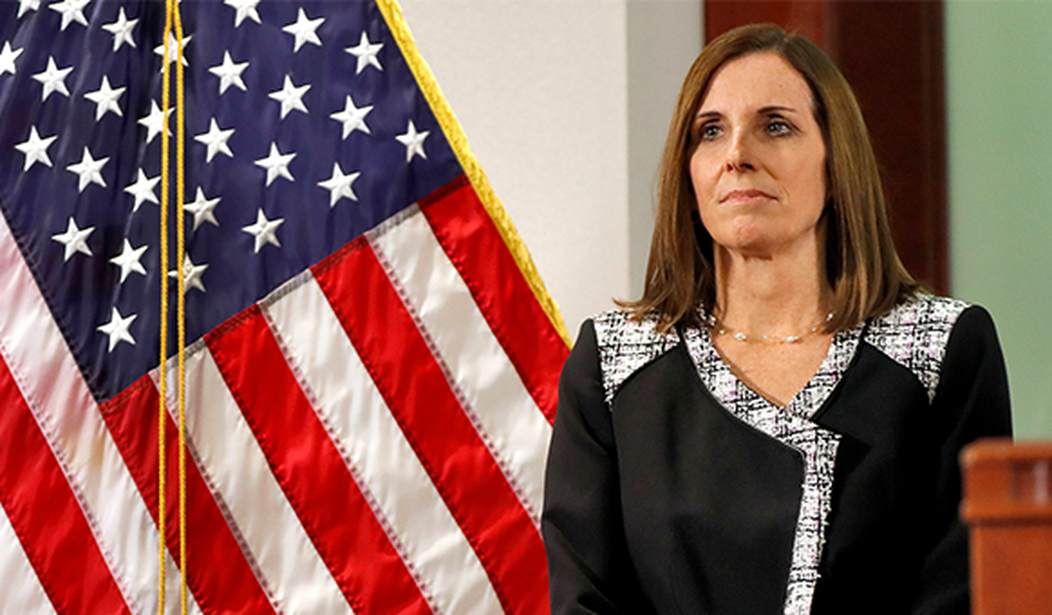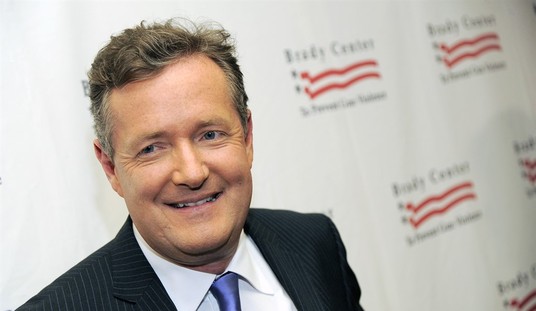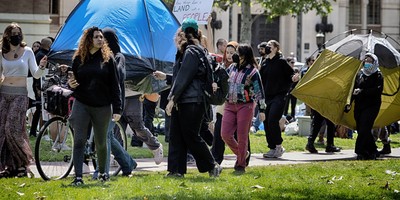As the nation looks toward the 100 members of Congress's upper chamber and counts how many votes would likely be cast toward the confirmation of President Trump's eventual nomination to replace Ruth Bader Ginsburg on the Supreme Court, the balance seems to be in favor of the majority party.
But one vote hangs in the balance, underscoring a sense of urgency for the president to move forward with the nomination and for the Senate to act as quickly as possible to get that person onto the bench. For the moment, the Republicans hold a 53-47 advantage over the Democrats and the two Independent senators who caucus with them. But that majority, in which at least two Republican senators have indicated they would not support a nomination before the presidential inauguration in January, could shrink long before Congress's next session.
Martha McSally, who was appointed by Arizona Gov. Doug Ducey to fill the late Sen. John McCain's seat in early 2019, is competing in a special election in her home state to officially take over the remainder of McCain's term. If she loses, her lame-duck session could end as early as November 20, giving her only a matter of days to participate in a post-election confirmation of the new Supreme Court justice.
In Arizona, the winner of the Senate special election will take office as soon as the election results are certified. Although the Georgia senate seat currently occupied by Kelly Loeffler (R) is also being fought over in a special election, the winner of that contest will not be sworn in until January.
Recommended
The addition of another conservative to the Supreme Court would give Republican appointees a 6-3 advantage, which many see as a window for the Court to overturn pro-abortion decisions and dismantle Obamacare. Perhaps knowing she could be looking at limited time to participate in one of the most historic confirmations in the history of the Supreme Court, McSally affirmed her support of replacing Justice Ginsburg the night she passed away.
This U.S. Senate should vote on President Trump's next nominee for the U.S. Supreme Court.
— Martha McSally (@SenMcSallyAZ) September 19, 2020
Certainly, conservatives hoping to get a Trump-nominated justice through the confirmation process would want to do so prior to the general election, assuring that the bench will be full should there be any legal election troubles that require a Supreme Court ruling as there were in 2000. But beyond the desire to see the duly elected president replace the left-wing activism of the late Justice Ginsburg with a constitutional conservative, the Republicans of the Senate must act against the clock that may not be on their side.
Both Sens. Lisa Murkowski (R-AK) and Susan Collins (R-ME) have indicated that they would not support any nominee of President Trump unless he is reelected, diminishing the narrow majority in the Senate. Sen. Mitt Romney of Utah announced on Tuesday morning that he would support the process of nominating and confirming a presidential appointment but as he has proven throughout his tenure in the Senate, made no promise to support whoever that nominee was. Romney famously disapproves of the president, and his willingness to buck the Republican Party line is well-documented.
Polling in Arizona shows a tight race between McSally and her Democratic challenger, former astronaut Mark Kelly. Currently, the average provided by Real Clear Politics has Kelly in the lead by 6.7 points, though this result shows McSally gaining on Kelly in recent days. She has lagged behind the Democrat throughout the election season.

























Join the conversation as a VIP Member